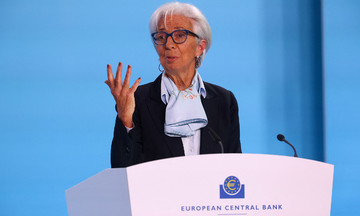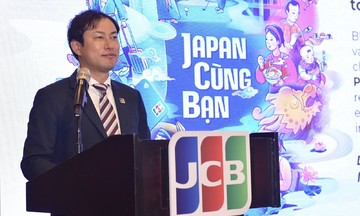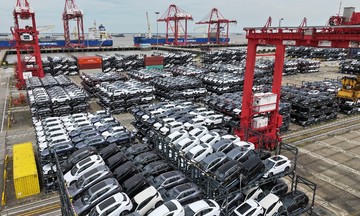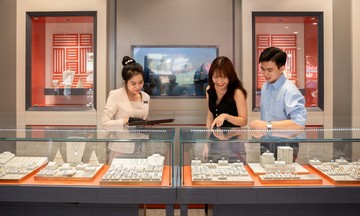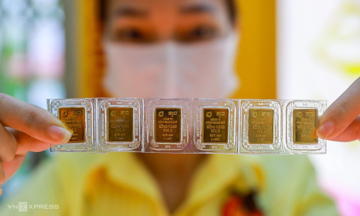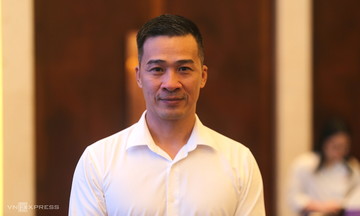On 11/9, Committee IV unveiled the Vietnam Private Sector Economic Overview model, following the Prime Minister's directive. The model aims to mobilize the collective strength of the private sector, contributing to the implementation of Resolution 68 on private sector development.
The model comprises four committees representing businesses across 17 sectors, including innovation, manufacturing, infrastructure, logistics, services, and human resources. It aims for a "public-private nation-building" approach, where private businesses and government agencies collaborate and share responsibilities.
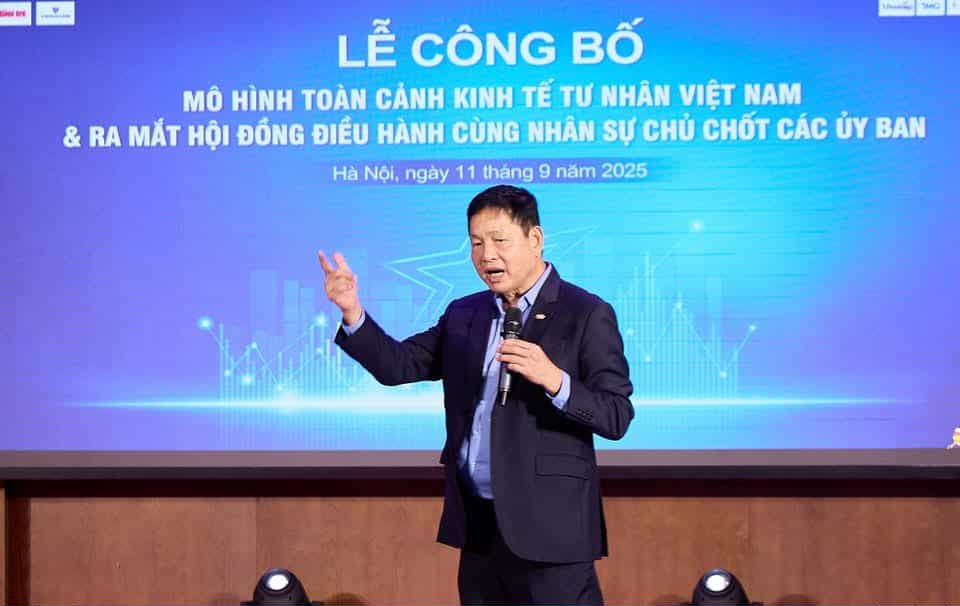 |
Truong Gia Binh, Chairman of FPT and Head of Committee IV, speaks at the launch of the Vietnam Private Sector Economic Overview model this morning. Photo: Committee IV |
Truong Gia Binh, Chairman of FPT and Head of Committee IV, speaks at the launch of the Vietnam Private Sector Economic Overview model this morning. Photo: Committee IV
This model encourages large enterprises to pioneer and lead their respective industries, bringing along an ecosystem of small, medium, and even micro-sized businesses. This means even the smallest businesses can see opportunities and collaborate with industry giants.
The FPT Chairman noted that many Vietnamese businesses prefer to operate independently, handling everything "from A to Z," which reduces their competitiveness. He recommended that each business focus on excelling in one stage of production, allowing other businesses within the ecosystem to handle the remaining stages.
The goal of this collaborative approach, instead of each business operating in isolation, is to achieve double-digit growth over 20 years and elevate Vietnam to high-income status by 2045. This involves cooperation between public and private sectors.
Truong Gia Binh highlighted two key lessons learned from successful international models. The first is ecosystem-based development, inspired by the Taiwanese semiconductor company TSMC. The second is South Korea's "Miracle on the Han River," which prioritized the development of domestic businesses to lead key economic sectors.
The Private Sector Economic Overview is an annual series of activities, culminating in a dialogue with government leaders, likened to a "Dien Hong Conference," scheduled for 10/10.
The event has set a 20-200-2,000 target: closely monitoring and resolving bottlenecks in 20 key national projects, developing 200 national businesses (not just a few large corporations like South Korea), and bringing together 2,000 intellectuals and entrepreneurs. For example, with a key project like the North-South railway, this model will closely track each obstacle and its resolution from the central and local levels down to the commune level. This means business difficulties are treated as national concerns, rather than leaving businesses to "handle them alone" as before.
Furthermore, large corporations undertaking national-level projects must involve small and micro-businesses, creating a robust ecosystem. "When the entire industry participates in a project or development strategy, all businesses within that industry have the opportunity to grow," said Tin on the sidelines of the event. He added that this is the basis for the expectation of sustained double-digit growth for many years.
To inspire confidence among startups, small and micro-businesses, Mai Huu Tin, CEO of U&I Group and a member of the Vietnam Private Sector Economic Overview Steering Committee, said they would appeal to the patriotism of every Vietnamese individual and entrepreneur, especially those eager to contribute more to their businesses and the community.
Leading entrepreneurs also encouraged young people to participate in building the nation's economy, given the positive signals from the country's highest leadership and the opportunities recognized by veteran business leaders. "Now is the perfect time for you to get involved, for everyone to participate in nation-building," said Tin.
Truong Gia Binh expressed his hope that "we will tell Vietnam's story, similar to the miraculous stories of Taiwan and South Korea - a story unprecedented in its kind."
Thuy Truong



